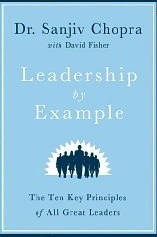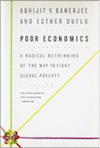The Yuan as The World’s Reserve Currency
The most hotly debated topic between the US and China has been the undervalued Chinese Yuan, but an equally important development has been quietly developing over the last year– its internationalization. Having made more than 12 trips to  China throughout the last two years, this topic has been by far the one discussed most with various Chinese executives and officials and I believe it will have major implications.
China throughout the last two years, this topic has been by far the one discussed most with various Chinese executives and officials and I believe it will have major implications.
So why is the government pushing the globalization of the Yuan? My contacts tell me that it is due to the government’s focus on quality of growth instead of absolute growth. There are two specific goals: 1) raise the standard of living by getting the Chinese to save less and buy more, 2) increase wages by dramatically increasing the value-add part of China’s manufacturing industry.
A convertible, international Yuan will support China’s growth strategy in the following ways:
- It will allow the Chinese to invest their savings at home and abroad. This in turn should boost the rate of return on their savings, and their disposable income, thus
 increasing their willingness to spend.
increasing their willingness to spend. - It will help China’s economy to balance trade and investment flows, an essential requirement as the economy becomes more sophisticated.
- It should lead to the further development of China’s local capital markets and modernization of its monetary policy, including continued liberalization of interest rates. This would also become an effective tool to control inflation, particularly as wages rise.
Global Mindset
A global mindset is a set of capabilities that can dramatically accelerate a business leader’s ability to develop and foster successful relationships across multiple cultures.
 Here is the challenge: In most societies, most citizens are raised and socialized to deal and work with people who are like them, so they develop uni-cultured lens to help them understand and interpret their surroundings. This has worked well in the past, but today, employees and executives are required to work with people who are different from them and have different cultural backgrounds.
Here is the challenge: In most societies, most citizens are raised and socialized to deal and work with people who are like them, so they develop uni-cultured lens to help them understand and interpret their surroundings. This has worked well in the past, but today, employees and executives are required to work with people who are different from them and have different cultural backgrounds.
Moreover, global trade has dramatically increased over the last decade, while the US, Europe and Asia have increased their economical interdependency. Moving forward, emerging markets will account for the majority of the  global growth over the next 20-30 years, so the need for companies to become more global has never been more important than today.
global growth over the next 20-30 years, so the need for companies to become more global has never been more important than today.
But, it’s important to note, more global doesn’t necessarily mean only having customers and subsidiaries in international markets. It also refers to a company’s culture and ability to deal with multiple cultures, languages and socio-economical dynamics. In a recent survey of senior executives in 100 global corporations conducted by Worldwide ERC, 95% of the respondents reported that national cultures of the places they do business in play an important or very important role in the success of their business mission.
Italian Hope
As some of you know, I am an Italian citizen and a very proud one.  With the recent changes in the country, many people have asked for my thoughts on what will happen to Italy moving forward. I feel that Italian politics have consistently undermined a nation that is full of creative, passionate and intelligent people. It is, therefore, at this moment in time in which we find Italy embroiled in economic dire straits, that I see an opportunity for Italy to make a clean break from the turmoil it has known for more than half a century. (Note: There have been 60 governments since Italy was established as a Republic in 1946).
With the recent changes in the country, many people have asked for my thoughts on what will happen to Italy moving forward. I feel that Italian politics have consistently undermined a nation that is full of creative, passionate and intelligent people. It is, therefore, at this moment in time in which we find Italy embroiled in economic dire straits, that I see an opportunity for Italy to make a clean break from the turmoil it has known for more than half a century. (Note: There have been 60 governments since Italy was established as a Republic in 1946).










